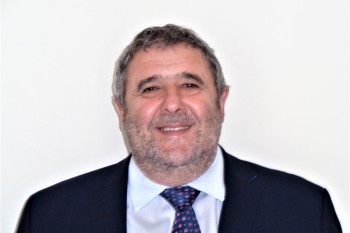Events
Promote investment in the science and technology sector
—- Japan and Greece have been building friendly relations for over 120 years since the conclusion of the Treaty of Amity, Commerce and Navigation in 1899. How do you see the recent relationship between the two countries?
Greece and Japan have excellent relations in all areas based on close cooperation and mutual respect. Political relations have been active in recent years, including the visit of the Foreign Minister to Japan in April 2019 and a visit by a delegation of three Ministers in January 2020. Our cooperative relationship is expanding in many areas, including international organizations. As both Greece and Japan are maritime nations, respect of the United Nations Convention on the Law of the Sea is a common concern. Greece is recovering from the 2009 economic crisis, during which we saw over $200 billion of disinvestment. Now Japanese business resume activities including Japan Tobacco’s investment. Greece has potential in the science and technology sector with abundant young and skilled workforce. Thessaloniki is emerging as a regional hub and attracts many foreign high-tech companies. We welcome Japanese investment in joint ventures and R&D. In the field of cultural exchanges, we organized the Olympic flame lighting ceremony in Athens and passed it to the Japanese delegation. We are looking forward to the Tokyo Olympic and Paralympic Games in summer, as proof of victory of mankind over the coronavirus.
—- As Greek Ambassador to Japan, what is your priority mission for further strengthening the bilateral ties?
My priority is to deepen mutual understanding and promote bilateral visits and cooperation. In economy, we are talking with Japanese partners about the EU after Brexit, development of the Indo-Pacific area, and prospects of joint venture projects. 2021 marks the 200th anniversary of Greek independence and we are planning cultural events in both countries. Although we are optimistic about overcoming the coronavirus, we still don’t know how much we will be able to do, and this also affects the planning of the National Day reception on March 25.
—- How is Greece dealing with the COVID-19 pandemic? What does Greece expect from the EU’ s €750 billion coronavirus recovery fund?
Although the situation in Greece is much better than in other countries, thecurrent death toll is many times higher compared to last spring. The government was forced to revert to lockdowns. The coronavirus has accelerated teleworking and further automation. The Ministry of Development has worked out a program of around €70 billion to be funded by the EU recovery fund: it places priority on green and digital transition, employment and skills, and private investments. The program has already been presented to the European Commission, and the funds will be made available following its approval. The government, using opportunities presented by the coronavirus crisis as a springboard, is pursuing a holistic economic recovery policy. This requires huge investment and we expect cooperation from partners including Japan.
—- There is growing tension between Greece and Turkey over energy resources in the Eastern Mediterranean. What is Greece’s position?
There have always been questions over the maritime boundaries between Greece and Turkey. Turkey’s 1974 invasion of the north part of Cyprus and subsequent occupation of part of the island has exacerbated the tension. Turkey now claims an exclusive economic zone in the Aegean and Eastern Mediterranean Seas. What matters to Greece is adherence to international law and respect of existing bilateral agreements. Turkey’s provocative actions in these waters are absolutely unfounded and illegal.Our position is clear-cut: the only new issue between the two countries isthe delimitation of the Exclusive Economic Zone, which has to be mutually agreed, in accordance with the United Nations Law of the Sea. Greece and Turkey are NATO allies, but the current situation is not viable. Although Greece has proposed to restart exploratory talks with Turkey, there can be no discussion under threats. The EU and the US share the same view.
(Interview by Shu Tamaru, Counsellor)
